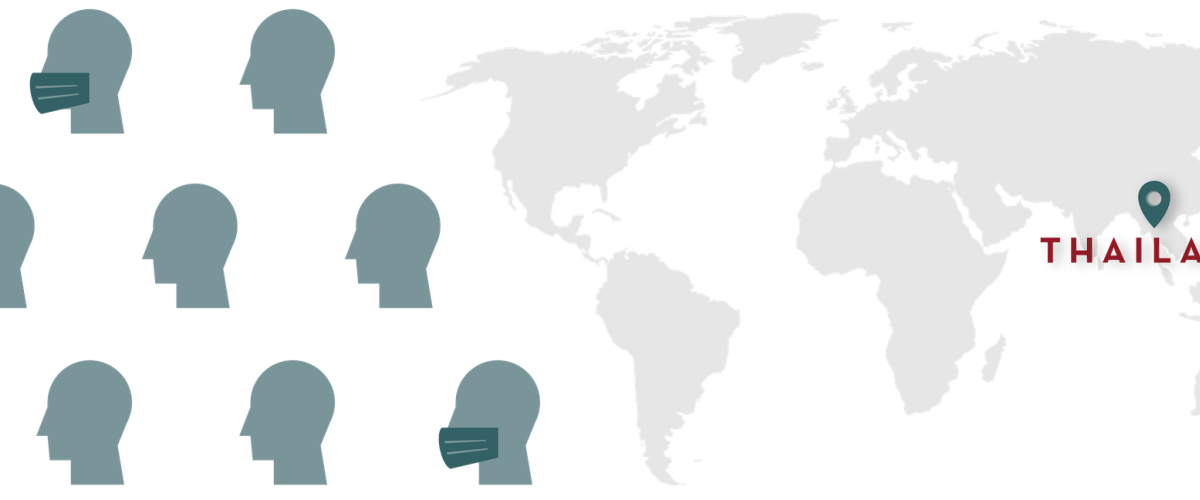COVID-19 Global Perspective from Thailand
Dr. Khuanchai Supparatpinyo is the Director of the Research Institute for Health Sciences at Chiang Mai University in Chiang Mai, Thailand. As part of our COVID-19 Global Perspective Series, we reached out to Dr. Supparatpinyo to hear how the COVID-19 pandemic is affecting Thailand.
What ways has your country's government responded to COVID19 outbreak and pandemic? When did you begin seeing a response?
Thailand is one of the first countries in the world to see COVID-19 patients out of mainland China. The Thai government started screening procedures for foreign visitors from the beginning of the epidemic in late January. However, we could limit the spread of COVID-19 for some time until the breakthrough of local clusters in Bangkok and metropolitans in early March. The number of patients increased from tens to hundreds rather quickly and distributed to other areas around the country; the government had to announce an emergency decree in late March. We started to see a decline in infection rate but it's still uncontrolled. The epidemic control measures focused on reduction of social movement and distancing were more tightened including a curfew for the whole country that will start today (April 3, 2020). If these measures are functioning, we expect to see a flattened epidemic curve soon.
How do you anticipate your country's health systems will be impacted? What are you and your institution doing to prepare for COVID19?
Although the number of COVID-19 patients in Thailand is still low (currently <2000), it is expected that the country's health systems will be impacted unless the epidemic is under control. Our institution is involved in several parts of the control system, e.g., joining the provincial COVID-19 committee, being a tertiary care hospital for severe cases, etc.
In what ways will your country/city/community be uniquely affected that differs from other places in the world?
I believe that the spread of COVID-19 in Thailand could be controlled for several reasons:
- It's now summer in Thailand and the ambient temperature is very high (more than 40 degree celcius in the afternoon in most areas).
- Thai cultures facilitate the practice of social distancing including use of face masks.
- Respect of elders is one of the Thai cultures that will prevent spreading to the vulnerable group.
- Strong community engagement, in particular municipal health care systems will effectively control the epidemic.
What are people doing locally to build support for their most vulnerable community members, neighbors, and family members?
As stated above, community engagement is a strong part of the country to control the epidemic. Some practices, for instance, include:
- Protection of elderly is most important.
- The community helps the government by doing local quarantine for its members coming back from high-risk areas.
What have you seen happen in your community that gives you hope or solidarity for positive outcomes?
See above.
Why is it more important now than ever before to collaborate with global partners?
This is the first true pandemic that has ever happened in our lifetime. COVID-19 is unique in its widespread, infectiousness and seriousness. Without collaboration with global partners, it is quite impossible to have quick and effective measures for treatment and prevention.
COVID-19 Global Perspectives
Our COVID-19 Global Perspectives Series features insights and updates from our global health partners around the world.
